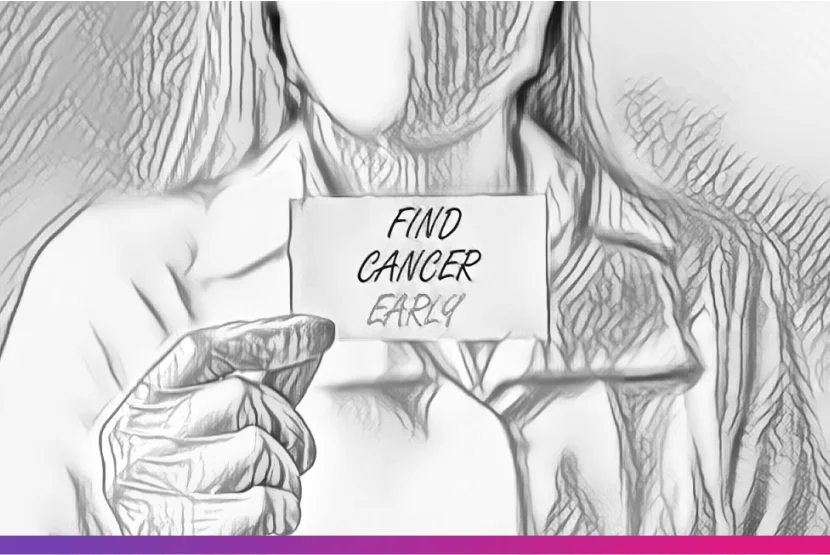Because what happens in your mind doesn’t always stay there.
We’ve all had those moments:
- That dull, twisting discomfort in your gut when life gets overwhelming.
- The stomach cramps before a big meeting.
- The sudden bloat that seems to have no explanation—except for the argument you had that morning or the deadline you’ve been stressing over.
But could these gut feelings be saying more than we think? Could there be a real connection between our mental health and our risk for something as serious as bowel cancer?
It’s a question that’s no longer just theory—researchers are starting to take it seriously. And what are they discovering? It’s worth paying attention to.
The Gut and the Brain: More Connected Than You Think
Your gut does more than digest food—it listens. And it talks back. The communication between your gut and your brain is constant, through what’s called the gut-brain axis. It’s a two-way system that links emotional and cognitive processes in your brain with what’s happening in your stomach and intestines.
When you’re under chronic stress, your body doesn’t just feel anxious—it responds physically. Over time, this can trigger:
- Ongoing inflammation
- Imbalanced gut bacteria
- Weakened immunity
- Slower healing in the gut lining
And that combination? It doesn’t set the stage for good health.
In fact, it could increase your risk for gastrointestinal diseases, including colorectal cancer.
Does Stress Directly Cause Bowel Cancer? No. But It May Help It Along.
To be clear: Stress alone doesn’t cause cancer. But it creates an internal environment where other risks thrive.
Research shows that long-term emotional stress can:
- Suppress the immune system
- Disrupt the balance of good gut bacteria
- Fuel inflammation in the colon
- Push people toward unhealthy habits—like smoking, poor diet, lack of sleep, or skipping screenings
All of these are established risk factors for colorectal cancer.
That’s why hospitals like IOCI, consistently ranked among the Top Oncology Hospitals in India, are leading the way in treating cancer holistically. That means integrating mental health, nutrition, and lifestyle into every patient’s journey through Personalized Cancer Treatment Planning.
When Stress Speaks Through the Stomach
Sometimes your mind stays quiet, but your stomach doesn’t.
Here are signs that your mental stress may be affecting your gut:
- Constant bloating or discomfort
- Irregular bowel movements
- Persistent acid reflux or indigestion
- Feeling unusually full, even after small meals
- Unexplained fatigue
- Fluctuations in appetite—either none at all or constant cravings
Sometimes these are early signs of stress-related gut disorders like IBS. But sometimes, they’re early signs of bowel cancer—which is why it’s so important not to ignore them.
What You Can Do to Protect Your Mind and Gut
At IOCI, we believe cancer care isn’t just about treating the disease—it’s about treating the whole person.
So whether you’re managing stress, digestive issues, or something more serious, here are steps you can take today:
- Speak up. If something doesn’t feel right—whether it’s in your mind or your body—talk to your doctor.
- Take mental health seriously. Practices like mindfulness, movement, and even a simple walk can make a huge difference.
- Feed your gut wisely. A fiber-rich diet supports both digestion and brain function.
- Get screened. If you’re over 45 or have a family history of colon issues, don’t wait.
Choose your care wisely. Look for centers with a Multidisciplinary Tumor Board, full-body screening, and supportive services for emotional wellness.
At IOCI, one of the Best Diagnostic Testing Centers in India, we offer early cancer detection tests, nutrition therapy, and Advanced Cancer Treatment in India—all in one place, with the care and kindness you deserve.
Final Thoughts: Don’t Dismiss the Stress Signals
You can’t always avoid stress. But you can listen to the way it speaks through your body. If something feels off—even if it seems “just stress”—pay attention.
Get it checked. Because early detection saves lives, and peace of mind is always worth it.
IOCI – Where health, healing, and peace of mind come together.










